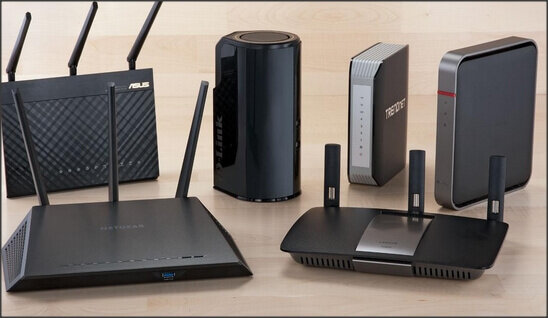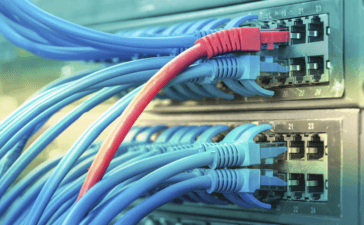Subscribing to a great internet provider and internet plan is only one piece of the puzzle to experiencing great internet service. You’ll also need great equipment, but how do you know what to choose when shopping for a Wi-Fi router? From Wi-Fi technology, to extra features and set up; a lot has changed in the world of Wi-Fi networking. Whether you’re shopping around to upgrade your Wi-Fi network or get out of your internet provider’s router fee, here are five things to consider when buying WiFi router.
1. Price
Wi-Fi routers range from as low as $27.99 to as high as $499.99 depending on what you choose. However, you don’t need to break the bank on equipment to get great Wi-Fi. Before you run out to buy your next router, come up with a budget of how much you’d like to spend and how much you can comfortably spend. It’s easy to get caught up in all the extra features of more expensive routers, but don’t cheap out either. Ideally you want to choose a Wi-Fi router that will last you for the next few years to really stretch out your money. That means you should expect to spend from $100 to $200 on the most up to date mid tier router.
2. Current Wi-Fi Standards
If it’s been a few years since you’ve purchased your last router, you might be surprised by how much router technology has advanced. The current Wi-Fi standard is 802.11ax or Wi-Fi 6. This new tech delivers a more stable connection, faster network speeds and higher capacity to support multiple devices running simultaneously for modern households. You can still use older 802.11ac or Wi-Fi 5 devices on Wi-Fi 6 but you won’t truly experience the technology advances with Wi-Fi 6 until you’re using a newer device that’s certified for this new standard of Wi-Fi.
3. Choose A Dual-Band Or More
While shopping for your new router, you’ll see routers that have a single-band, dual-band and even tri-band frequencies. For most households a dual-band router will work great. Dual band routers work on the 2.4 GHz and 5GHz frequency bands. The 2.4GHz frequency has greater range, but is more susceptible to interference and congestion from nearby neighbors and other electronics. The 5GHz band is faster and less crowded, but it’s range is smaller than 2.4GHz. Using both bands simultaneously will deliver the internet speeds you’ve been expecting. If you’re thinking about choosing a single band, buyer beware that they aren’t enough for most households today. Tri-band routers are usually adored by serious gamers and streamers, so unless you have either living in your home, it would be wise to save the extra cash you’d spend on one instead.
4. Adequate Range
A new router won’t do you any good unless you consider the range you need. You don’t want to set up your new router just to find that part of your home isn’t covered or you have dead spots in some room. Yes, optimal positioning can help mitigate dead spots, but if you live in a large home or a home with many signal blockers, you’ll need a router with the best range possible. If this sounds like what you could be dealing with, you’re not without choices. You can choose a single router, a Wi-Fi mesh system or a series of powerline adapters. We recommend using a Wi-Fi mesh system because it’s easily customized to your unique situation, the fastest solution and is the future of Wi-Fi networking.
5. Mobile App Network Management
Almost every router out on the market today has an accompanying mobile app from the manufacturer, but it’s always a good idea to check first before you complete your purchase. Downloading and using the mobile app is so valuable to whomever in your home will be managing your Wi-Fi network. It makes managing it so much more user friendly and you can make the most of your router with it. Features like QoS, guest Wi-Fi networks, parental controls and data usage notifications are all set up and easily accessible within mobile apps.




